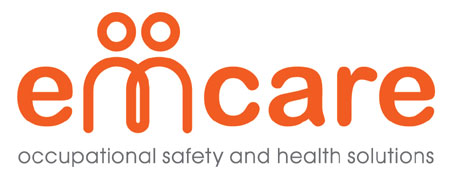When you search for your first course, you’ll likely come across mental health support via mhfa england, a mindset shift from traditional first aid training. Unlike physical care, Mental Health First Aid focuses on emotional literacy, stigma reduction, and early intervention. The evolution of MHFA in the UK has been shaped by workplace culture shifts, legislative guidance, and growing community need, especially under updated Health and Safety Executive advice.
Mission and Ethos Behind Mental Health First Aid in the UK
MHFA England advocates building safe, inclusive spaces where people feel valued and heard. Their mission promotes mental health awareness from the workplace to schools and communities. The goal is simple: help people feel supported and better equipped to help others.
How MHFA Builds Emotional Intelligence and Reduces Stigma
Attending an MHFA England course enhances your listening skills, empathy, and emotional intelligence. Learning how to approach someone in distress without judgement, offer reassurance, and guide them toward helpful resources normalises conversations about mental health and helps reduce stigma. Course participants often report feeling more confident starting difficult conversations and supporting peers early on.
The Origin of the ALGEE Framework
Central to MHFA training is the aid action plan known as ALGEE. Developed originally in Australia in the early 2000s, this five‑step structure, Assess, Listen, Give reassurance and information, Encourage professional help, and Encourage self‑help, provides a clear sequence for users to follow in crisis and non‑crisis situations. It promotes non‑judgmental support and practical skills for real‑world encounters.
Real‑World Relevance: MHFA’s Growing Role in UK Workplaces, Schools, and Communities
Mental Health First Aid continues to grow in relevance across the UK. Many employers, schools, universities, and community groups now embed MHFA England training as part of their wellbeing programs. This shift reflects both cultural change and evidence of reduced absenteeism, improved morale, and better employee engagement.
Practical First Aid Training That Feels Relevant
Your first MHFA course will typically involve up to 14 hours of structured content delivered live in small groups, whether face‑to‑face or online. Interactive sessions cover real‑life case studies, group activities, reflection exercises, and role‑play guided by experienced instructors. You will leave with both the foundational knowledge and confidence to apply ALGEE in everyday situations.
If you travel often or work internationally, staying mentally and physically healthy matters. At Emcare Travel Clinic.
Inside the MHFA Classroom: Course Format, Atmosphere & Delivery
If you’re considering enrolling in a Mental Health First Aid (MHFA) course, you might be wondering what it’s actually like inside the classroom. Whether you’re attending to boost your personal knowledge or to take aid action in your workplace or community, understanding the course format, learning environment, and delivery style can help you feel confident before your first session.
Mental Health First Aid is more than just a typical training, it’s an immersive and supportive experience designed to equip individuals with practical tools and understanding around mental health issues.
What the Learning Environment Feels Like
The MHFA classroom is intentionally designed to be welcoming, respectful, and inclusive. From the start, participants are encouraged to listen actively, engage in meaningful discussion, and share at their own comfort level. Unlike traditional corporate training, the atmosphere is relaxed yet purposeful. Sessions often start with icebreakers or introductions to help participants feel at ease, setting a foundation for trust and openness.
Trainers place a strong emphasis on empathy and safety, recognising that discussions around mental health can bring up personal memories or emotions. The goal is to create a space where everyone feels heard, supported, and free from judgement.
Formats Explained: In-Person, Online, and Hybrid
In the UK, MHFA courses are available in several formats to suit different learning needs:
- In-person sessions are ideal for those who prefer face-to-face interaction and group dynamics.
- Online courses allow for flexibility and access across remote regions, with content delivered through secure digital platforms.
- Hybrid options combine both methods, offering the convenience of online learning with the depth of in-person discussion.
Each format covers the same core content, ensuring that regardless of the delivery method, you receive a consistent and high-quality experience.
Course Timeline Breakdown
The MHFA training programme typically runs for 12 hours and can be completed over two full days, four half-day sessions, or six two-hour modules. Here’s a general breakdown:
- Session 1: Introduction to mental health and stigma
- Session 2: Recognising symptoms and understanding common mental health disorders
- Session 3: Approaching a person in distress and how to offer initial support
- Session 4: Crisis scenarios and practical tools for managing situations
- Session 5 & 6: Recovery, self-care, and signposting to professional help
Throughout the course, you’ll engage with videos, case studies, and group exercises that bring the material to life and build confidence in your ability to offer support.
Instructor Styles: Trauma-Informed and Inclusive
MHFA courses are delivered by professionals who have undergone specialised instructor training to ensure they are prepared to guide sensitive conversations. Many adopt a trauma-informed approach, meaning they are attuned to participants’ emotional safety and well-being. Instructors facilitate with care, balancing structured content with open dialogue, allowing participants to learn through discussion as well as direct instruction.
Safe Space Design for Sensitive Topics
Sensitive topics such as suicide, self-harm, and anxiety are handled with professionalism and compassion. Ground rules are established early on to promote respect and confidentiality. Participants are regularly reminded they can step away or opt out of any activity that feels overwhelming.
This thoughtful structure ensures that everyone can engage in the course at their own pace while building the skills needed to take informed and compassionate aid action in real-life scenarios.
After the Course: What It Means to Be a Certified MHFAider®
Becoming a certified MHFAider® is only the first step in a lifelong journey. Once you complete your mhfa training, you unlock new possibilities for supporting others and fostering stronger mental health in your workplace or community.
The journey does not stop at certification
Following course completion, you receive an official certificate that is valid for three years and membership in the largest MHFAider community in England. You are encouraged to register for the optional RSPH Level 3 Award in Mental Health First Aid to demonstrate deeper commitment and expertise. However, even without the qualification, your MHFAider role begins the moment you finish the course.
Access to post‑course support
Certified MHFAiders gain access to the MHFAider Support App®, which offers 24/7 text support, secure conversation logging, prompts for wellbeing check‑ins, and a national database of mental health services. They also receive ongoing learning through quarterly webinars, monthly newsletters, and resources via the MHFA England Online Learning Hub. This helps sustain health awareness and keeps your core skills fresh.
Bringing MHFA skills into your workplace or community
Once certified, you can apply your learning in everyday contexts. You might offer a listening ear to a struggling colleague or recognise when someone may need professional help. With tools such as the MHFA action plan and mental health literacy, you become a trusted guide in your environment. Whether this is introduced during induction training or as site training, your role significantly boosts workplace culture and destigmatises help‑seeking.
Caring for yourself as a helper
Effective MHFAider practice requires attention to your own needs. Boundaries are essential, you must remember that you are not a therapist and maintain confidentiality and impartiality in every interaction. Self‑care techniques and reflection are available through the MHFAider Support App®, helping you sustain your role without burnout. Participation in peer support circles or supervisory check‑ins further nurtures resilience.
Transitioning from Learner to Advocate
Completing mental health first aid training marks a powerful transformation, from learner to advocate. Many MHFAiders describe a strong sense of mental health awareness and purpose. They feel compelled to raise awareness, encourage open conversations, and help shape healthier environments. The support ecosystem ensures you never walk alone, even after certification ends.



